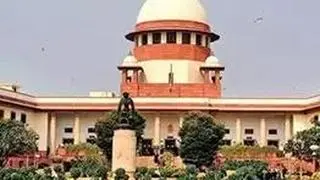The recent law that provides 10 per cent reservation for economically backward sections is said to benefit poor upper castes as well as some farming communities. But, could this be a step towards a more meaningful reservation policy?
Understanding the 124th Constitutional Amendment
The 124th Constitutional Amendment received the President’s assent on January 12.
This amended two fundamental rights:
- Article 15, which prohibits discrimination on the grounds of race, religion, caste, sex or place of birth
- Article 16 which prohibits discrimination in employment in government office
The amendment provides for the advancement of the “economically weaker sections” of the society.
It also makes a note of the Article 46, which asks the government to promote the educational and economic interests of the weaker sections of the society.
Moreover, it provides reservation for:
1. People who have an annual income of less than Rs 8 lakh, or
2. People who own less than five acres of farm land, or
3. People who have a house less than 1,000 sq feet in a town (or 100 sq yard in a notified municipal area).
Reworking reservation?
This is not the first time the Modi-administration talked of a change in the reservation policy.
In May 2018, the Prime Minister Narendra Modi said, “The government wants the most backward in OBCs to benefit more from reservation within the given limit. We have formed a commission to look into sub-categorisation of the OBCs.”
To safeguard the interests of the backward classes, the NDA government even amended the Constitution (via the Constitution (123rd Amendment) Bill, 2017) to give more powers to the National Commission on Backward Classes. The Bill was passed by the Lok Sabha on August 2, 2017 and by the Rajya Sabha on August 6, 2017.
Debatable problems
The major hurdle for the implementation of the recent Act is the legal scrutiny. The Supreme Court has ruled multiple times against exceeding its 1992 formula of a maximum of 50 per cent reservation.
However, there are States like Tamil Nadu that go beyond this limit and the Supreme Court has upheld the state's policy many a time. Currently, the State has a ‘69 per cent quota system’.
The Tamil Nadu example
Tamil Nadu has had a quota policy from the pre-Independence period. By the 1980s, the quotas in the State were as high as 68 per cent.
The top court's verdict in the Indira Sawhney v. Union of India (Mandal Commission) Case made this policy untenable and the then government led by J Jayalalithaa amended the Ninth schedule of the constitution by passing the Tamil Nadu Backward Classes, Schedule Castes and Scheduled Tribes (Reservation of seats in educational institutions and appointments or posts in service under the state) Act, 1993 to keep the policy.
This act was amended in 2007 to add backward class Muslims and in 2009 for the Arunthathiyar Community.








Comments
Comments have to be in English, and in full sentences. They cannot be abusive or personal. Please abide by our community guidelines for posting your comments.
We have migrated to a new commenting platform. If you are already a registered user of TheHindu Businessline and logged in, you may continue to engage with our articles. If you do not have an account please register and login to post comments. Users can access their older comments by logging into their accounts on Vuukle.